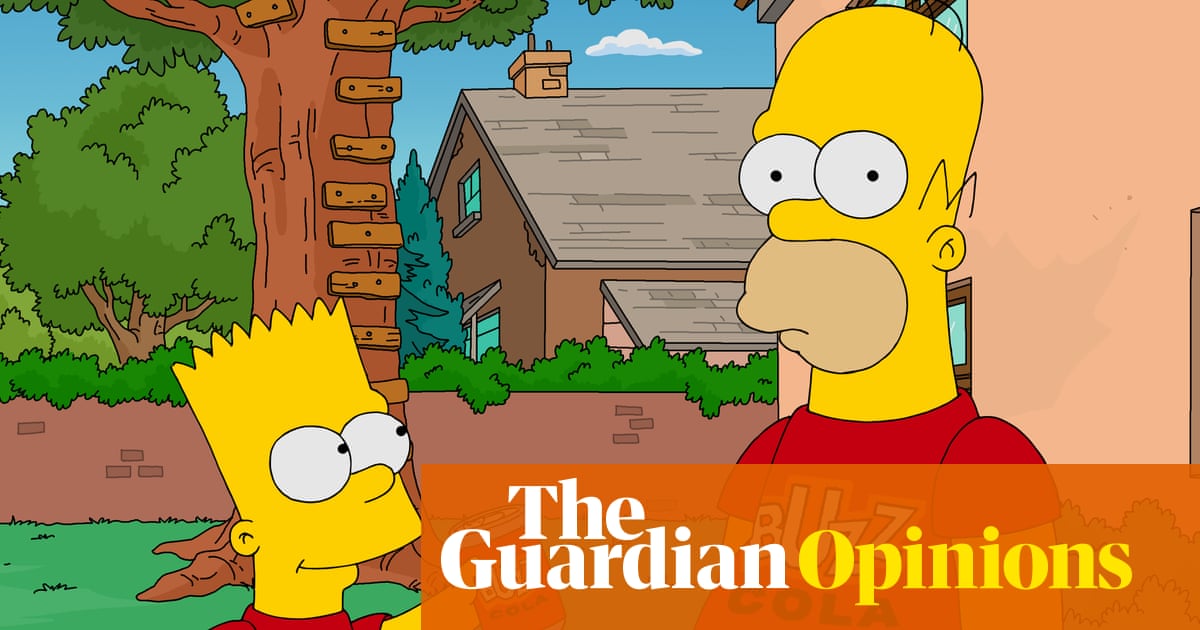Nothing lasts forever. In time, the continents will crash into each other once more, the sun will swallow the planet and, at some point long after that, The Simpsons will end. But that isn’t to say that it’s incapable of moving with the times before then. Because, in yet another nod to shifting tastes, Homer Simpson has revealed that he will no longer attempt to strangle his son to death.
In the third episode of the current 35th season, Homer greets his new neighbour by shaking his hand. When the neighbour comments that he wasn’t expecting such a firm grip, Homer replies: “See Marge, strangling the boy paid off,” before acknowledging that he doesn’t actually do that any more. “Times have changed,” he adds.



When the Simpsons first came on it was deeply subversive and that era of TV, where things were really opening up beyond the big three networks for the first time, has so fundamentally changed TV programming that people can forget (or younger people can just not understand) what TV was like in the 1980s before insurgents like Fox and MTV changed the landscape.
By the late 1980s the formula, form, and what was socially permitted on TV sitcoms hadn’t changed much in 40 years. The Simpsons was a purposeful rejection of all of the ‘rules’ that sitcoms had followed to that point. A big part of that was the classic TV ‘authority figures’ who are always right, just, and caring were purposely subverted: the dad is a dumb, self-centered, abusive, alcoholic jerk, the cops are all corrupt and stupid, the teachers hate the children and don’t care about their education, the principal is a pathetic loser with delusions of relevance, the mayor is corrupt and womanizing, the preacher just doesn’t care at all and wants to be left alone; hell, the children’s clown on TV is arguably the most immoral scumbag on the show.
Similarly, Homer strangling Bart was meant as a subversion of the “patient father sits the misbehaving child down for a heart-to-heart where things get resolved” trope of sitcoms of the previous half century; instead dad physically abuses the misbehaving child and nothing is ever resolved. Where TV sitcoms to that point were fantasies about what the best versions of American culture could be, the Simpsons was an over-the-top take down of what our culture actually was.
But, obviously, as the TV culture they were satirizing went away (in no small part because of their show’s success) the show needed to change too. In 1989, Homer strangling Bart rather than having a soft-focused heart-to-heart with music rising in the background was unexpected, subversive satire. In 2023 it’s just a depiction of child abuse whose original context is long gone. The same show just doesn’t work without the cultural context it was created in and meant to lampoon.
Who knew that we lived this long - not as a warning to others, but to explain why the Simpsons used to be funny!
While I agree with you and also agree with the decision to not show it anymore, I do want to highlight this bit that you wrote:
The positive thing is that it never (or so raraly that I wouldn’t remember) presented the strangling as anything good or helpful. Instead it was always presented as a shortcoming of his personality. Homer is mentally ill equipped to solve conflicts with Bart non-violently. Strangling him was his only outlet and (at least to attentive viewers) it was clearly and evidently damaging Bart’s development. This is for example demonstrated in a scene where Bart has such a trauma that he’s getting “strangled” by thin air when he thinks his dad would go for it.
Also, with the knowledge that Bart is, to some extent, Matt Groening’s self-insert, that does raise some rather unpleasant questions.